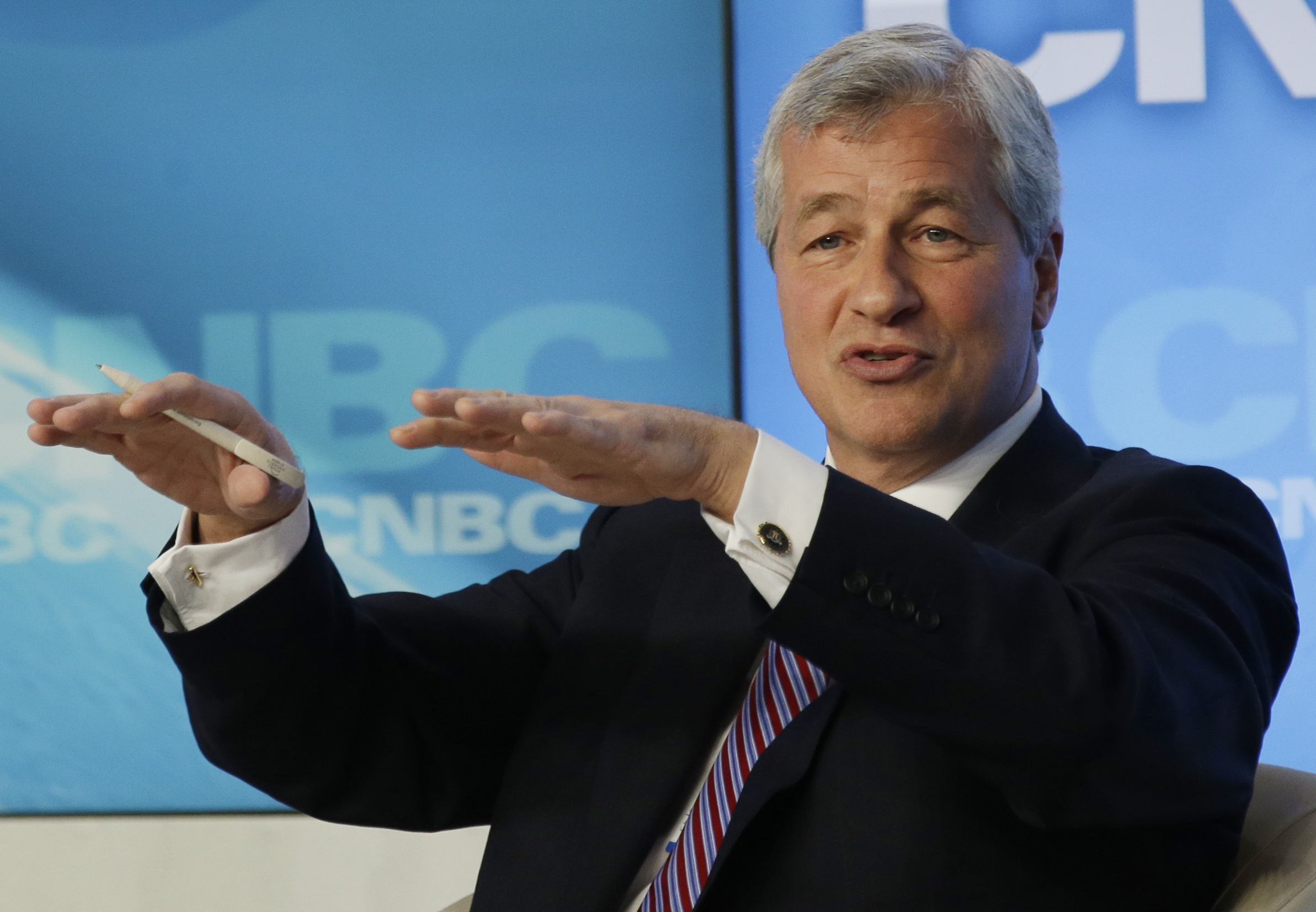The treatment of the US President, Donald Trump, not only towards his own economy but also towards the European Union is starting to raise concerns among Wall Street leaders. The weakening of the transatlantic bond harms both sides because, according to the US Department of Commerce, American investment in Europe amounts to four trillion dollars, which is 60% of the total investment abroad.
James Dimon, president of JPMorgan - the largest bank in the US and the world - and Elon Musk, the owner of Tesla, are among those openly calling for agreements with Europe in recent hours.
Dimon is particularly expressive in the letter to shareholders he signed this Monday accompanying the annual report of the American giant: "Our country's goal should be to help Europe become stronger and keep it close. If Europe fragments, the world will closely resemble the prologue to World War II." "It would be disastrous."
The leading banker explains: "Each nation will need to seek its own relationships to secure its future, and that may very well mean closer relationships with Russia and Iran for energy and with China for trade and the economy." This, he warns, will turn them into "vassal states" because "the economy is the long-term glue."
Therefore, Dimon urges Trump to design a foreign policy that supports Europe in improving its competitiveness and becoming another engine of growth for the West. "America First is fine, as long as it doesn't end up alone," he quips with Trump's slogan.
Dimon warns of European economic decline - which Trump's punishment can accelerate - and how the EU must seize the opportunity to strengthen itself. He does not explicitly mention Spain, but he does hint in his letter at reflections like this: "There are well-intentioned labor laws that can be counterproductive, as seen in parts of Europe where the rigidity of labor regulations has contributed to persistently high unemployment." The two countries with the highest unemployment rates are still Spain and Greece, but Dimon does mention the latter as an example of a reformist government that achieves good results.
According to the American banker, the recipe is clear for the EU: "Nations must significantly reform their economies to enable growth; complete the single market to make trade between their countries easier and more efficient, and initiate labor and tax reforms to encourage business growth and employment." Also, increase military spending, where the US should provide support.
Musk, also in need of Tesla or SpaceX development in Europe, shows concern and advocates for "zero tariffs" between the US and European markets, through the creation of "a free trade zone" between the US and the EU. "That has been my advice to the president," he stated in Italy, a friend of Trump.
On this side of the Atlantic, Gilles Moec, chief economist of the French group Axa, believes the trade war "will significantly hit Europe." The reason is "the drop in US demand both as a direct consequence of tariffs on European products and induced recession, as it will reduce European exports. The effect will be magnified by the current appreciation of the euro. Moec assumes that the damage will be greater for the US, but he points out that the starting point of the European economy is worse.
Also, the aforementioned Dimon warns of the harm Trump is causing to his own economy. He assumes that "growth will slow down" and there will likely be "an increase in prices." Most of Wall Street's big players avoid directly criticizing Trump but emphasize the problems he is causing. Also, BlackRock's president, Larry Fink, warns of inflation and also believes that the US GDP has already stopped growing these days. "With all the CEOs I talk to, they tell me we are probably already in a recession." And Goldman Sachs sees it closer, with a 45% chance already, while reducing positions in European stocks.
